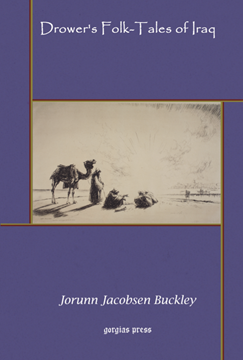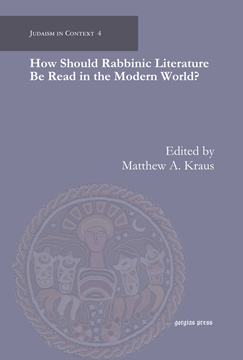Taha Husayn
His Place In the Egyptian Literary Renaissance
ISBN: 1-59333-316-1
This book was by far the earliest book-length study of any aspect of modern Arabic literature to be published outside the Arab world.
$151.00 (USD) $90.60 (USD)
Iraq After The Muslim Conquest
ISBN: 1-59333-315-3
Morony compares conditions in late Sasanian and early Islamic Iraq in the seventh century AD and depicts both the emergence of a local form of Islamic society, and the interaction of Muslim conquerors from Arabia with the native population.
$262.00 (USD) $157.20 (USD)
Drower’s Folk-Tales of Iraq
ISBN: 978-1-59333-360-7
A collection of folktales from Iraq, dating from the 1930s, found in the archives of the famous English Lady E. S. Drower (1879–1972), who was novelist, folklorist, specialist on the Mandaeans, and writer of travel accounts. New tales edited by Jorunn Buckley form a second volume of Drower’s Folktales. The stories—carrying recognizable Near Eastern folk-tale features—feature monsters and heroes, maidens and fairies and they give a vivid picture of a now extinct oral folktale tradition. This Gorgias Press edition includes previously unpublished tales in addition to those of the 1931 edition.
$216.00 (USD) $129.60 (USD)
How Should Rabbinic Literature Be Read in the Modern World?
Edited by Matthew A. Kraus
Series: Judaism in Context 4
ISBN: 978-1-59333-214-3
Through literary, historical, archaeological, and engendered readings, this collection of essays presents a multidisciplinary analysis of rabbinic texts. Such a conversation between diverse scholars illuminates the hermeneutical issues generated by the contemporary study of the Talmud and Midrash.
$174.00 (USD) $104.40 (USD)
Hearing God’s Call and Following Jesus
Two Scriptural Retreats on being Christian in the Modern World
ISBN: 1-59333-318-8
The aim of this book is to show readers how they can approach passages and teachings in Scripture in a practical way that will bring the passages to life, and help them make their daily lives better examples of Christian discipleship. It also offers concrete suggestions for how people can understand the Bible as an integrated whole. This book supports attempts by laypeople to read the Bible intelligently and religiously at the same time.
$56.00 (USD) $33.60 (USD)
A Study in Black Holiness-Pentecostalism
Series: Gorgias Studies in Religion 23
ISBN: 1-59333-317-x
This project was inspired by years of nurture and ministry in the church upon which the study focuses. With roots going back to the historic African American Church, it offers a window into early growth, the development of crucial theological positions, institutional development within the American Church of the twentieth century, and emerging patterns for worldwide Christianity in the twenty-first century. The struggle within this project is against a background of misunderstanding. Given the pejorative biases in earlier studies against African American Christianity in general, and Holiness-Pentecostalism in particular, a contest is under way for placement within the appropriate taxonomy.
$132.00 (USD) $79.20 (USD)





